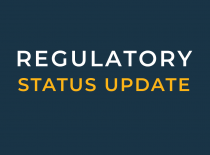All Posts
A status on projects currently under review by the Cape Cod Commission.
A diverse group of public and private digital inclusion practitioners convened for meaningful discussions toward enhancing digital equity across Cape Cod. The Cape Cod Commission and Massachusetts Broadband Institute brought these stakeholders together at Cape Cod Regional Technical High School on May 16 for an afternoon workshop to discuss challenges and brainstorm solutions to bridging the region's digital divide.
The Metropolitan Planning Organization (MPO) voted to endorse the region’s annual transportation planning documents on Monday, May 20, 2024. The Transportation Improvement Program (TIP) is a five-year schedule of construction projects for surface transportation in the region, including roadway, transit, and multimodal projects. The Unified Planning Work Program (UPWP) is a list of projects to be completed annually by Cape Cod Commission transportation staff on behalf of the MPO. It describes significant transportation planning activities over a 12-month period, beginning in October
The Cape Cod Commission is pleased to release Housing Cape Cod: The Regional Strategy. This comprehensive document identifies policies and strategies for appropriate housing development and redevelopment to address housing supply, affordability, and availability challenges while protecting the region’s sensitive resources.
The Cape Cod Commission has released the draft 2024 Cape Cod Comprehensive Economic Development Strategy (CEDS) for a 21-day public comment period. The CEDS is a five-year strategic plan for economic development on Cape Cod. The plan is updated every five years in collaboration with the Barnstable County Economic Development Council (BCEDC) and local and regional stakeholders. It defines an action plan with priority projects to move Cape Cod's economy toward a sustainable future.
The Cape Cod Commission is seeking community members to join the Vision Zero Advisory Committee to help shape the future of transportation safety on Cape Cod.
The Cape Cod National Seashore Federal Advisory Commission met for the first time in more than five years on April 8, 2024 at the Seashore’s Salt Pond Visitor Center in Eastham. While the official charge of the Advisory Commission is to consult with the Secretary of the Interior on matters relating to the development of the Cape Cod National Seashore, including matters of acquisition by condemnation and zoning regulations, it also serves as a liaison between the Seashore administration, the towns within its borders, and the community at large.
Each year, the Cape Cod Commission receives funding through the Massachusetts Executive Office of Housing and Living Communities (previously the Department of Housing and Community Development) to provide technical assistance to towns in our region. The District Local Technical Assistance (DLTA) program helps municipalities with sustainable development and encourages partnerships to achieve planning and development goals that align with state and regional priorities.
Stakeholder engagement is a critical component of planning processes, helping to build consensus on impactful recommendations and create actionable plans. Stakeholder engagement to inform the Cape Cod Freshwater Initiative continued in March, with the launch of a process to engage diverse perspectives in working groups organized by groundwater lenses.
A status on projects currently under review by the Cape Cod Commission.










